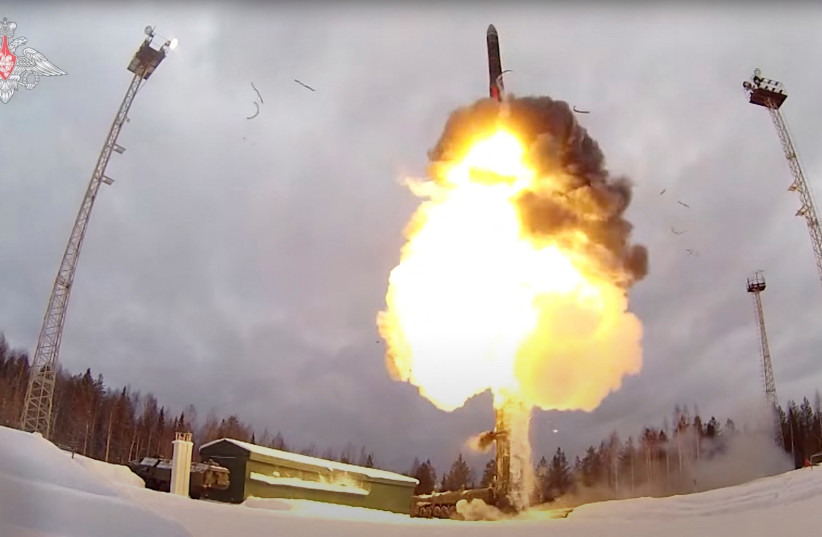The United States has informed Russia it will not exchange data on its nuclear forces, a White House spokesperson said on Tuesday, describing the change as a response to Moscow's decision to suspend participation in the New START nuclear arms treaty.
"Under international law, the United States has the right to respond to Russia's breaches of the New START Treaty by taking proportionate and reversible countermeasures in order to induce Russia to return to compliance with its obligations," a spokesperson for the National Security Council said.
"That means that because Russia’s claimed suspension of the New START Treaty is legally invalid, the US is legally permitted to withhold our biannual data update in response to Russia’s breaches," the spokesperson added.
A senior official in the Biden administration said that it was the United States' goal to encourage Russian compliance with the initial treaty. Russian President Vladimir Putin said last month that Moscow would also stand ready to test new nuclear weapons if Washington moved to do so first.
The US decision to halt this data-sharing was communicated on Monday to Sergei Ryabkov, Deputy Russian Foreign Minister by the US undersecretary of state for arms control and international security, Bonnie Jenkins.

Russian behavior predictable by US officials
Former senior US official Lynn Rusten told the Wall Street Journal, "Why should Russia continue to benefit from transparency measures when it is denying them to the United States?”
Others in the arms-control space expressed the belief that this action could lead to the unraveling of a decades-long nuclear competition between the US and Russia, the publication stated.
Other arms-control proponents expressed concern that it could lead to a gradual unraveling of the arms-control framework that has regulated the nuclear competition between Washington and Moscow for decades.
“Withholding this information provides the US with little or no leverage with Russia and further clouds the situation with respect to both countries’ compliance with the treaty,” Daryl Kimball, executive director of the Arms Control Association, told the Wall Street Journal.
